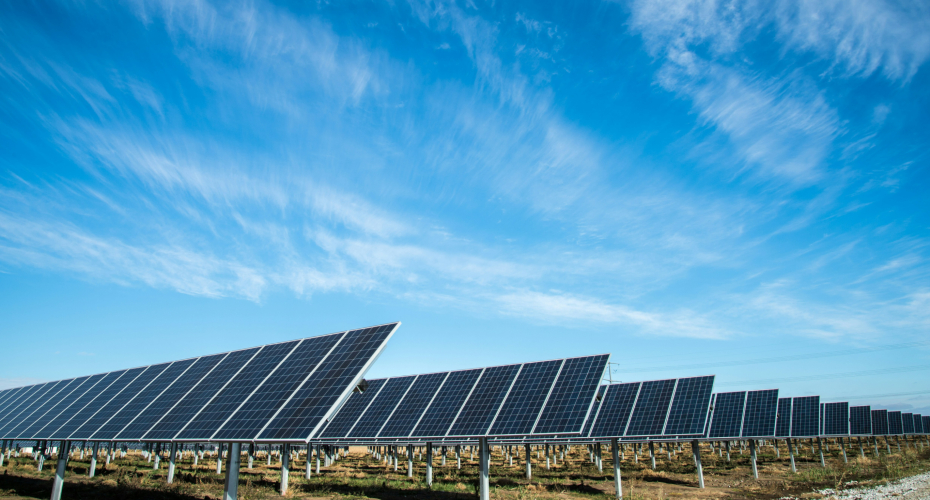Penryn Perspectives – Professor Peter Connor

Offshore wind by Nicholas Doherty on Unsplash
“I can realistically claim – alongside Helen Smith – to have taught more graduate renewable energy specialists than anyone else in the country.”
Professor Peter Connor
Professor Peter Connor is Associate Professor of Sustainable Energy Policy in the Faculty of Environment, Science and Economy, and, alongside Dr Helen Smith, is part of the original renewable energy team pioneering the teaching of renewables at undergraduate level’. Joining the University in 2005, Peter oversaw the establishment of the country’s first degree in the subject and has helped it grow in terms of programmes and students in the years since. On the research side, Peter specialises in national policies for the effective promotion of renewable energy technologies and their integration into increasingly smarter energy systems. He has a particular interest in the design and implementation of policy and regulation relating to electricity and heat within the UK and amongst EU Member States.
In the tenth edition of Penryn Perspectives, Peter takes us back to his very first moments in Cornwall, on a cold, wet and wintry train station.
“It took me six hours to travel down from Coventry for my interview with the University. I’d never been further south-west than Exeter, and there I was, standing on the raised platform of Falmouth Town station, as the little shunter train pulled out. I stood there, in the pitch black and with the rain slanting down at 45 degrees, and my first thought was “what?!”.
“Thankfully, I got the job, and it was only once I had moved down that I began to appreciate what life might be like here. I think it was on my first day that I went for a walk and there was this golden hour light, and I could see the views out over the harbour, and I realised this isn’t so bad! I’d always lived in these post-industrial urban areas – growing up in Widnes, then being based in the Midlands for my degree and postgrad – and I just assumed that I would end up in London. I work in renewable energy policy and London is where that policy happens. But here I was, suddenly living in one of the most beautiful parts of the country, and over the years it has changed my attitude to life. I was also lucky because everyone was starting at the same time, and people were open to going out and making new friends. I fell in with a good group and that very much helped with the transition.
“Once I started, I soon realised that there was pretty much just me on the academic side. On my first day, I was introduced to my PhD student – one of two there at the outset – and we had the support of one lab technician who we shared with Mining. The renewables degree had launched at Camborne School of Mines the year before, with eight students. A further 12 arrived in its second year and things were certainly a little tight to begin with. Today, we have a cohort of around 140 undergraduate and postgraduate students spread over five programmes, and with 15 members of staff that really give us that breadth of expertise to cover all aspects of renewable energy.
“Over that time as well, the sector has changed rapidly. Wind and solar have always been the key technologies, but it wasn’t until 2010, when both started to become much cheaper, that they started to emerge as the dominant forms, ending up where we are today, where they are the cheapest energy technologies. Now, we’re seeing the growth of floating offshore wind energy, especially here in Cornwall where the seabed is too deep to facilitate fixed offshore wind. With the government committing to a gigawatt of floating wind energy, we have a great opportunity to capture some of that potential here in Cornwall, along with the associated economic activity that it will trigger.

“Cornwall has a long history with renewables, and that was one of the reasons why the University chose to base the degree in Penryn. It had the country’s first wind farm at Delabole; it had the UK’s first solar farm in 2010; it’s got both micro and large hydroelectric facilities; there is an anaerobic digester up at Launceston as well. We also have a wave energy test site off Falmouth.
“It’s an ideal place to be learning about renewables, and it’s great for our students, many of whom are passionate about protecting the environment. On the marine side, being close to the coast is great because we can take our students out on boats and do readings both on and offshore. And with so many companies here, it gives us the chance to work with them, visit sites, place students for work experience, and tap into those themes of strengthening place and creating local opportunities.
“We now have around 500 alumni, and many now work across the energy sector. Every so often, one of them will send us a picture of them standing next to the first wind turbine that they’ve project managed, or on an offshore wind farm. To see them out there delivering large-scale projects is richly rewarding.
“So, the 20-year history of Penryn is also the coming-of-age story for renewable energy teaching at the University. We’ve come a long way since that first, rainy night in Falmouth.”



